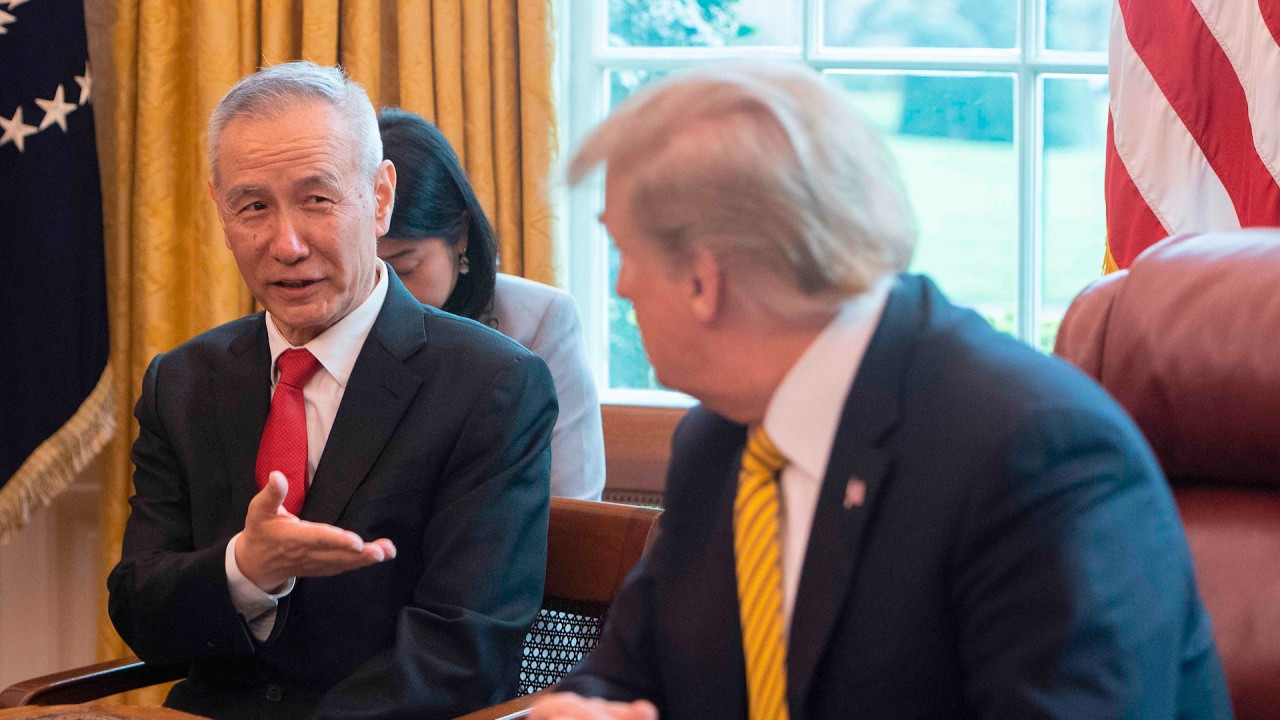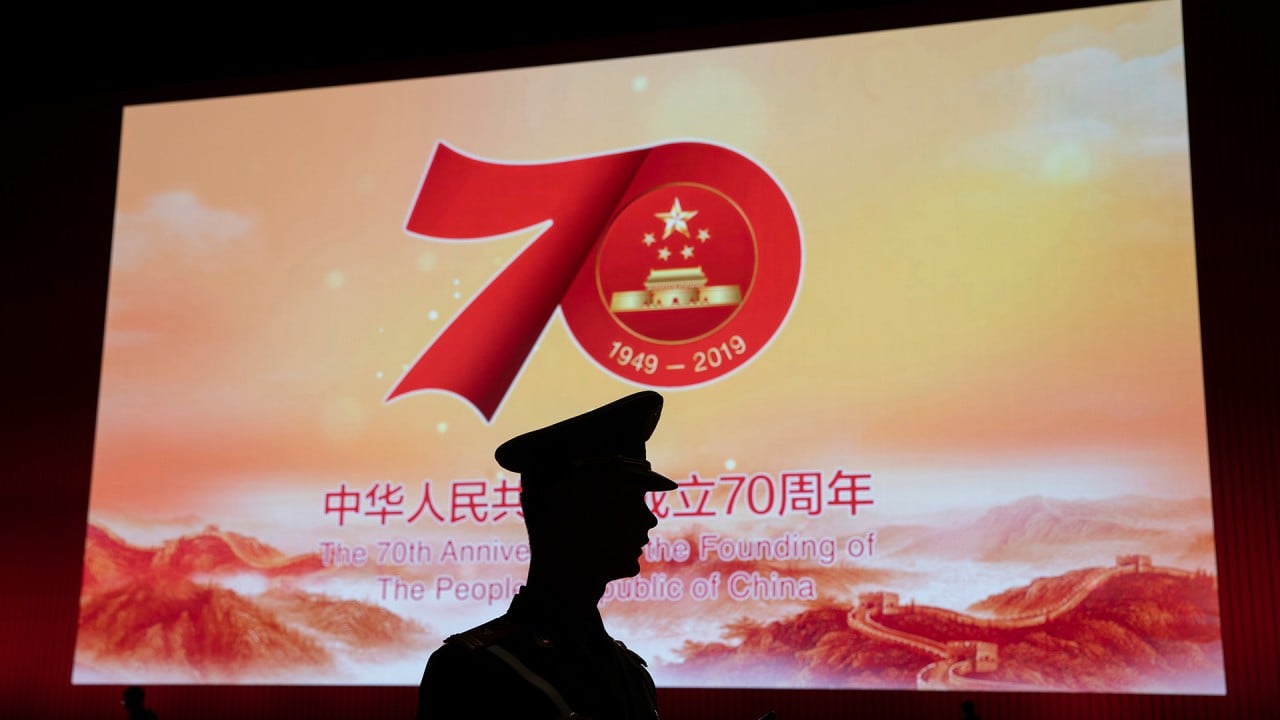
When East and West deny each other’s civilisation
- Until we learn how to be nice and respectful to each other, cultural warriors will have much to do to earn their keep by attacking the other side’s most cherished values, ideals and beliefs
Is there such an entity as “the West”? You may have heard of that stupid phrase, “from Plato to Nato”. I ask because there seems to be a new game among intellectual warriors or ideologues in some Western universities and think tanks arguing there is no such thing as “Chinese civilisation” and that “China” dates only to 1949, or at most 1911. Well, if they can challenge whether our culture and civilisation even exist, I think we can ask the same of theirs.
James Millward, a professor of history at Georgetown University, gives a pretty succinct summary of this “no China” view.
“The political history of continental East Asia involves a multiplicity of kingdoms, some but not all now considered part of ‘Chinese’ history,” he wrote.
“Their rulers were of various ethnicities and spoke different languages. Their states occupied many different areas of what is now the People’s Republic of China (PRC), often concurrently and inimically with other states.”
And what of “China”? “What would a more accurate historical approach to ‘modern China’ look like?” he asked.
“First, it would stop treating China as a politically continuous entity thousands of years old. Rather, bear in mind that the PRC just had its 70th birthday – that makes it 173 years younger than the United States, for example.”
So, we have come down to this. Besides imposing tariffs and sanctions and threatening each other with big guns and warships, we are now down to “deconstructing” and delegitimising each other’s identity and nationality, cultural autonomy and continuity.
This is truly becoming a clash of civilisations, when East and West deny each other’s right to be so labelled.
China-US decoupling, ideological hatred hurts both sides: Beijing’s top envoy
I will leave the task of defending China as a continual civilisation to many far more qualified and erudite Chinese scholars. But I don’t think it’s that difficult to deconstruct the West as a coherent entity. Quite simply, many distinguished scholars and thinkers in Western countries have already done it, so I am merely repeating them here.
I was educated in a US college based on the so-called Great Books, you know, the Western canon written and composed – Bach and Beethoven also belong to this tradition – by “dead white European males”. I think it’s fair to say, for better or worse, depending on your position in the culture war, that the whole idea of a Western canon has been repudiated by the vast majority of Western universities, with a few exceptional academic dinosaurs.
The canon was once supposed to be spiritual core of “the West”, the best of what it has to offer, the “pursuit of [which is]”, wrote Matthew Arnold in Culture and Anarchy, “our total perfection by means of getting to know, on all the matters which most concern us, the best which has been thought and said in the world”.

01:12
Ahead of new trade war talks, US and China show acts of ‘goodwill’ on tariffs
Take, for example, the idea that there was a straight line to be drawn from Euclid’s The Elements to the non-Euclidean geometries of the 19th century, leading via Maxwell’s equations to Einstein’s special and general relativity theories. That was how it was taught in my old school.
But that’s nonsense, at least historically; the science and mathematics are perfectly fine, of course. The non-Euclidean geometries of Gauss, Bolyai, Lobachevsky and Reimann were a repudiation of Euclid, not an extension or an advance. As Oswald Spengler brilliantly observed in The Decline of the West, no culture is like the modern West in the way it celebrated and appropriated another dead culture, that of the ancient Greeks, yet so completely overthrew their science and maths, philosophy and logic.
That was how Newton and Galileo destroyed Aristotle’s physics; Copernicus’ heliocentric theory replaced Ptolemy’s geocentric model; modern logic trivialising Greek syllogism while laying the foundations for computer coding. The German mathematical analysts of the 19th century completely undermined the notion of numbers as magnitudes as conceived by the Greeks.
Why do some Western critics inevitably get China wrong?
If there had been a real heir of Greek science, maths and philosophy, it was Islam and its thinkers.
But what about Western modern politics and culture? There is the old chestnut that someone asked Mahatma Gandhi what he thought of Western civilisation. His reply was: “I think it would be a very good idea.”
Kwame Anthony Appiah, the distinguished British-Ghanaian cultural theorist, doesn’t even think there is such a thing.
“To be blunt: if Western culture were real, we wouldn’t spend so much time talking it up,” he said in the BBC Reith lecture. “It will help to recognise that the term ‘Western culture’ is surprisingly modern – more recent certainly than the phonograph.
“The very idea of the ‘West’, to name a heritage and object of study, doesn’t really emerge until the 1890s, during a heated era of imperialism, and gains broader currency only in the 20th century.

07:24
A chronology of the People’s Republic of China in the past seven decades
“If the notion of Christendom was an artefact of a prolonged military struggle against Muslim forces, our modern concept of Western culture largely took its present shape during the Cold War. In the chill of battle, we forged a grand narrative about Athenian democracy, the Magna Carta, Copernican revolution, and so on. Plato to Nato.
“Western culture was, at its core, individualistic and democratic and liberty-minded and tolerant and progressive and rational and scientific. Never mind that premodern Europe was none of these things, and that until the past century democracy was the exception in Europe – something that few stalwarts of Western thought had anything good to say about.”
So, we get the idea of the West, a manufactured and artificial notion, because of wars waged by white guys down the centuries: Christendom against Islam; the Cold War crusade against Soviet communism; post-911 “war on terror”, again, against Islamic countries …
And of course, now the West or at least the US, has China in its cross hairs. So, there is again the need to conjure up this noble “West” in defence of universal humanity and freedom. It’s the West against oriental despotism, never mind that China doesn’t want a war, or a global confrontation. It’s worth noting that many Chinese today, all those supposed Winston Smiths of 1984, own large, high-definition flat screens with 5G connection, not the two-way monochrome of Orwell’s imagination.
Xi Jinping hits out against hegemony and decoupling at UN
No one who has read some history seriously thinks there is an unbroken civilisation from the Xia/Shang/Zhou to the Chinese Communist Party today, any more than there is such a convenient continuity as “from Plato to Nato”.
But there are distinct characteristics, call them Chinese and Western, that constitute valuable contributions to human civilisation. Frankly, I think the Western canon is worth a lifetime to explore, whether it really defines the true essence of the West, or just a random arbitrary collection put together by racist white guys. In my old US school, everyone had to join a choir, whether or not you could sing, and do a version of Dies Irae from Mozart’s Requiem. I still own and play a vinyl record of Herbert von Karajan’s Requiem with the Berlin Philharmonic.
I felt a sense of “cross-cultural” affinity when I read, in an Atlantic magazine profile, that the great Chinese classical pianist Wang Yuja often disappeared during the weekend, carrying with her only a Wagner score and Kant’s Critique of Pure Reason.
Sadly, the world today is in great civilisational and cultural conflicts.
Until we learn how to be nice and respectful to each other, cultural warriors will have much to do to earn their keep by attacking the other side’s most cherished values, ideals and beliefs.

